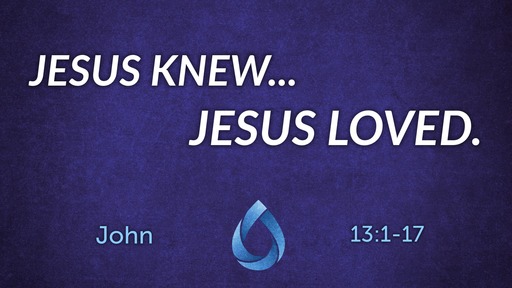Jesus knew... Jesus loved.

Jesus knew...
Jesus knew… the hour had come to go to the Father
Jesus loved them to the end
Jesus loved… his disciples
Jesus knew… the betrayer
Jesus loved Judas
Jesus knew his time of trial, and he loved his own, thinking of them, teaching and encouraging them to the end.
Jesus knew his position, power and authority, and loved, thinking of and serving them to the end.
Jesus knew the sinner, and loved him, warning him to the end.
Teach Me to Love
It wasn’t easy for Corrie Ten Boom to forgive the Nazi captors who had tormented her at Ravensbrück. They had caused her to suffer horribly. Even worse, they had caused the death of her sister, Betsy.
Ten years after her release, Corrie ran into a lady who wouldn’t look her in the eyes. Asking about her, Corrie was told the woman had been a nurse at a concentration camp. Suddenly the memories flashed back. Corrie recalled taking Betsy to the infirmary to see this woman. Betsy’s feet were paralyzed, and she was dying. The nurse had been cruel and sharp-tongued.
Corrie’s hatred now returned with vengeance. Her rage so boiled that she knew of but one thing to do. “Forgive me,” she cried out to the Lord, “Forgive my hatred, O Lord. Teach me to love my enemies.”
The blood of Jesus Christ seemed to suddenly cool her embittered heart, and Corrie felt the rage being displaced with a divine love she couldn’t explain. She began praying for the woman, and one day shortly afterward she called the hospital where the nurse worked and invited the woman to a meeting at which she was speaking.
“What!” replied the nurse. “Do you want me to come?”
“Yes, that is why I called you.”
“Then I’ll come.”
That evening the nurse listened carefully to Corrie’s talk, and afterward Corrie sat down with her, opened her Bible, and explained 1 John 4:9: “In this the love of God was manifested toward us, that God has sent His only begotten Son into the world, that we might live through Him.” The woman seemed to thirst for Corrie’s quiet, confident words about God’s love for us, his enemies. And that night, a former captive led her former captor to “a decision that made the angels sing.”
